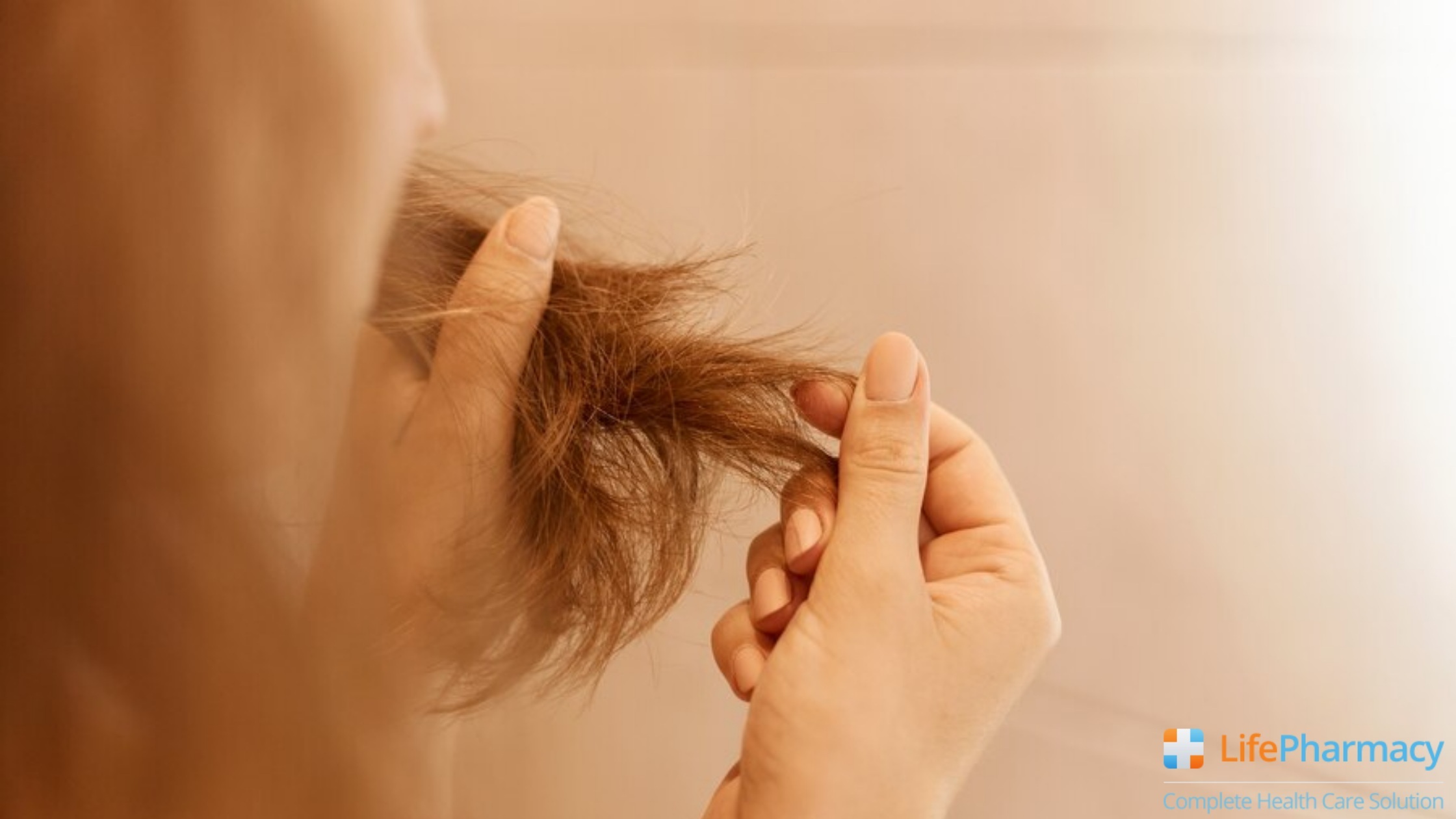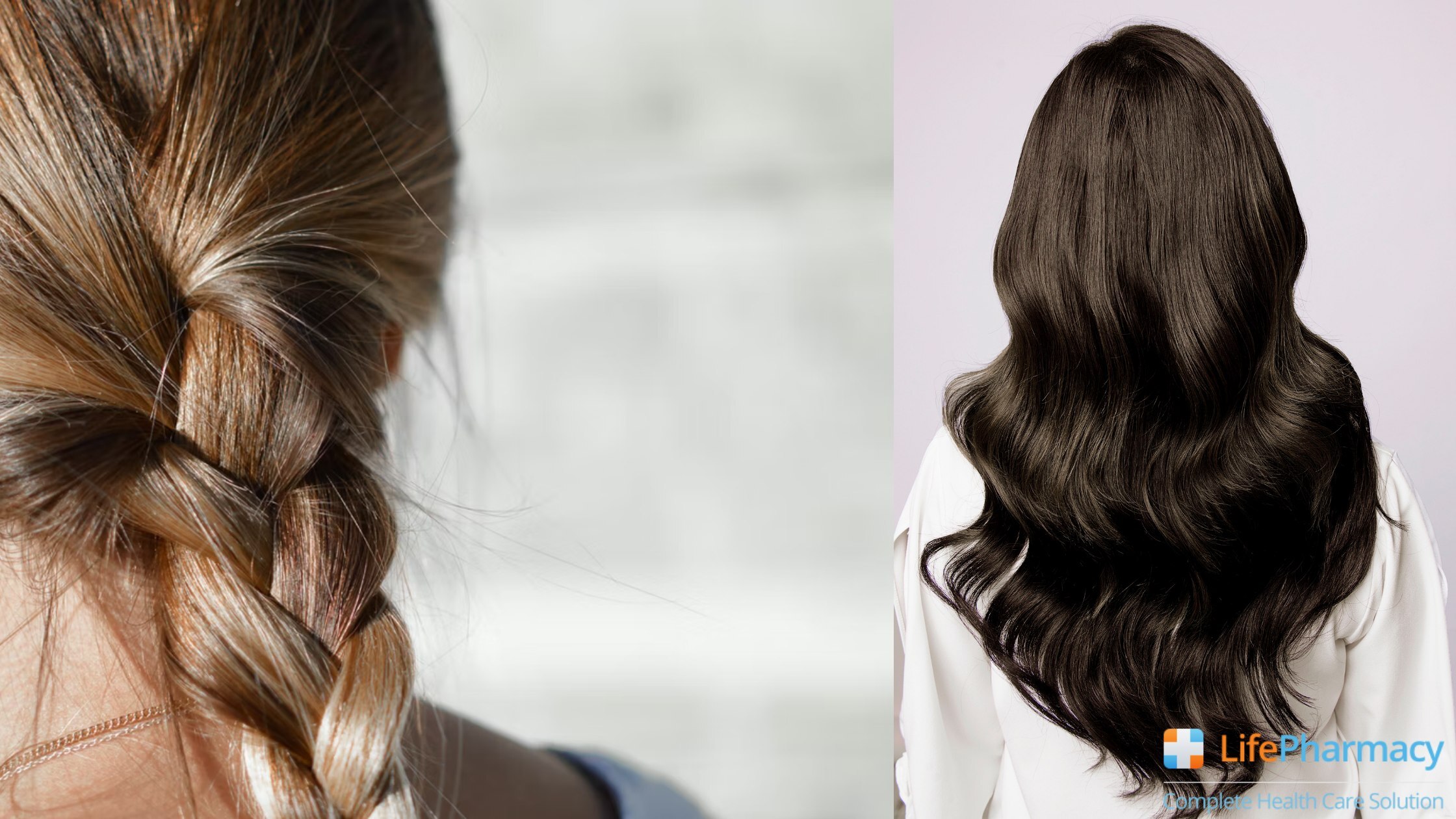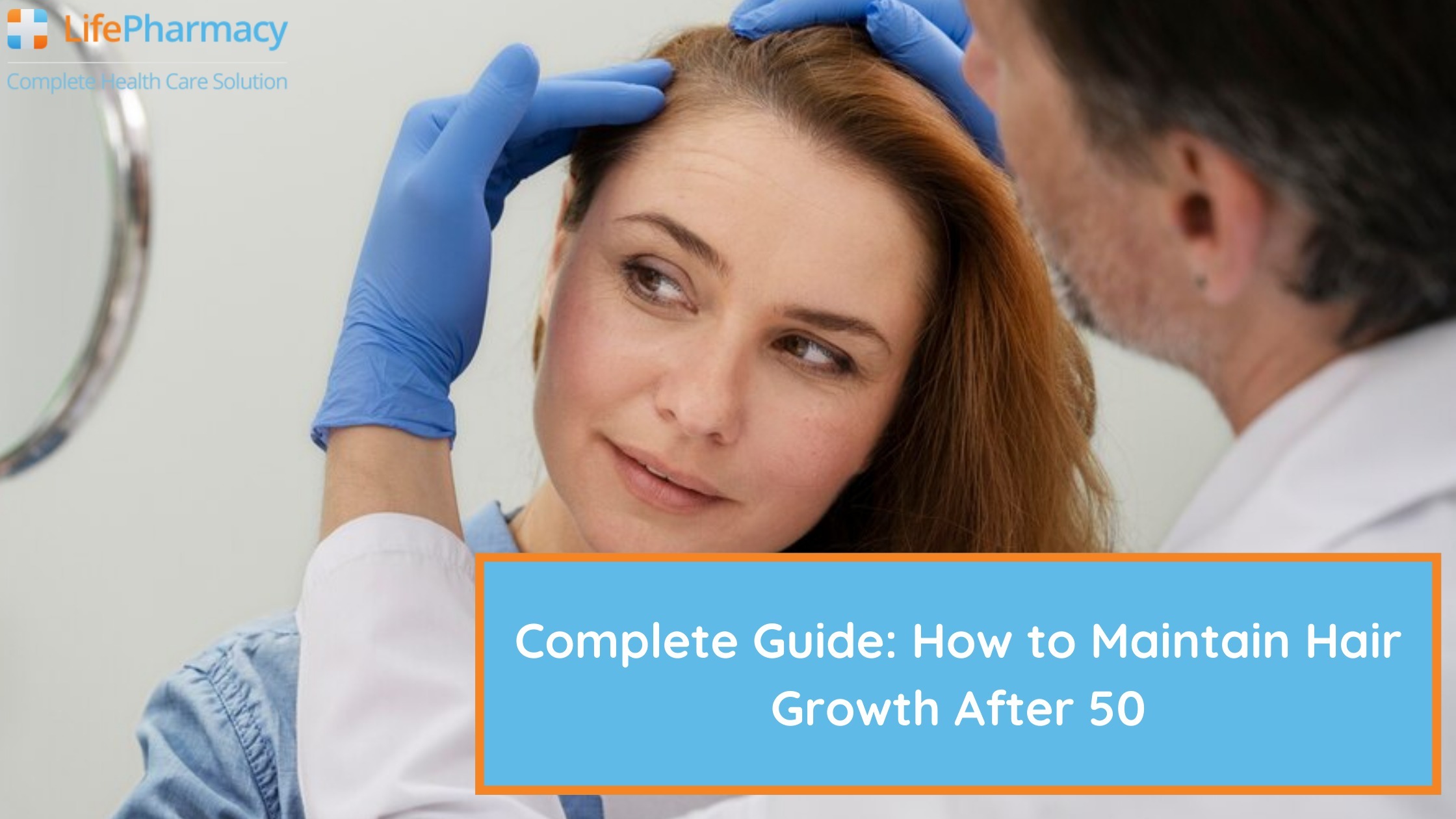What are the reasons for changes in your hair as you age?
Hair is composed of protein strands, with a single strand of hair having a normal life ranging from two to seven years. On average, your hair grows 0.5 inches a month and six inches annually. With age, the life cycle of your hair is shortened, making the shorter and finer hair strands fall out. Normally, the hair that falls out is replaced with newer hair. But due to aging and environmental changes, some hair follicles stop generating new hair altogether and hair fibers eventually become thinner and fall out.

Chemists online give you several factors due to which men and women experience hair loss as they age:
Hereditary traits: These are genetic traits passed down from parents to offspring. Hereditary traits often impact hair conditions. For instance, if one of your parents has a history of hair loss or thin hair, you might experience the same.
Thyroid disorders: When the thyroid gland starts malfunctioning, the hormone production is disrupted, affecting other processes in your body. The hair that falls out may not be replaced by new hair as the hair development is affected at the root. This can lead to hair thinning across your scalp and eyebrows.
Endocrine disorders: The endocrine glands release chemicals called hormones into your bloodstream. When an imbalance occurs in the hormones secreted by the endocrine system it may be accompanied by hair loss.
Nutritional deficiencies: A diet that lacks the required nutrients in the right proportion can lead to hair loss.
Menopause: Menopause is the stage in a woman's life when her monthly menses stop, which plays a crucial role in inviting several problems after the age of 40. When this happens, the production of hormones estrogen and progesterone reduces while testosterone becomes dominant. These female hormones help restore the hair follicle fibers and stay on the head for a longer time. When estrogen and progesterone levels drop, hair becomes less.
Along with hair loss, you will experience changes in the natural hair pigment as you age. The amount of pigment secreted by the pigment cells reduces, making your once voluminous, lush hair turn thin and gray. The only resort to maintain your youth is coloring your gray hair. But the chemicals used in hair dyes, in turn, may cause more damage to your already thinning locks. So what option are you left with?
To keep your hair looking great after the age of 50, you need to give it special attention and do things to support hair growth. To make your hair stronger, thicker and lustrous, follow these steps from Life Pharmacy UK to offset these natural and environmental changes.
Tips to Maintain Hair Growth After 50:

1. Wash less frequently
Your skin type (normal, dry, or oily) should be the deciding factor for the type of shampoo you must use and how frequently you must wash your hair. Regardless of this fact, most dermatologists feel that washing your hair too frequently may cause them to become too dry or brittle. Excessive use of shampoo is not effective; it is sufficient to keep your scalp clean by washing your hair at least twice per week.
2. Use a good conditioner and volumizer
After you shampoo your hair, using a conditioner is a vital hair-care step that helps to maintain healthy locks. It helps to add moisture that may have been stripped away during shampooing and replenishes your hair’s natural oils and sheen. Besides conditioner, adding volumizers that work as a splint helps to nourish each strand of hair, bloating it up and adding more overall volume.
3. Choose the right hair products
Do you color-treat your tresses? If you think trying this stint at home will help you save some money, you might be compromising on the health of your hair. It is best to see a stylist color your hair as they can recommend the safest dye for your hair type. Additionally, they have the knowledge and expertise to help you determine the shampoos, conditioners, and other hair care products that would be appropriate for color-treated hair.
Do you use heat styling tools like blow dryers, curling wands, and flat irons daily? If yes, UK pharmacy advises you to forego using these tools daily and cut back on the usage to one or two days a week. Although we all want to look our best, these intense heat styling tools can inflict tremendous damage to our delicate locks.
And don’t forget to apply a heat protectant to your hair before using heat-styling products. The role of the heat protectant is to act as a protective barrier between the heated styling products and your hair. It adds moisture to your hair, protecting it against damage during heat styling.
Hormone-disrupting chemicals like parabens and phthalates that are commonly found in many hair products must be avoided at all costs. However, whether the natural environment and foods put you at a greater risk than these chemicals is a question unexplained.
4. Eat a balanced diet rich in nutrients
Genetics or age are not in your control, but one surefire way to keep your hair healthy is through eating a balanced diet rich in nutrients. Since proteins are the building blocks for your hair, foods like eggs, red meat, berries, spinach, green leafy vegetables, and avocados are all great options. Besides proteins, several vitamins and minerals are essential to strengthen your hair, skin, and nails.
But as you age, your meal portions may get smaller, leading to nutritional deficiencies. To overcome this nutritional deficit, you might need to consume vitamins and supplements daily. Besides consuming some of the A to Z multivitamins, it is important to know the best time for their intake to maximize their absorption.
5. Check if the medications you take can impact your hair
Hair loss can aggravate due to some prescribed medicines for heart disease or those that help to lower lipids. If you are experiencing severe hair loss, UK online pharmacy recommends you talk to your doctor to know if any of the medications you take are responsible for this and ask for advice on how you can counteract the negative impacts of these meds. Also, women should anticipate a great amount of hair loss when they stop hormone replacement medication.
6. Consult Your Doctor
Changes to your hair are an inevitable part of the aging process. However, some symptoms should ring warning bells as they might indicate an underlying health condition. Some of these symptoms are:
-
Unexpected patchy hair loss
-
Unusual hair loss when combing or washing your hair
-
Women experiencing a receding hairline
Your doctor may be able to guide you if these symptoms are due to alopecia areata which is a hair loss disease that can be a result of stress. In this disease, the immune system attacks your hair follicles.
Conclusion
Women may long to have the hair they had at 20, but no one is lucky to flaunt the same hair at the age of 50 or 60. Thus, it’s important to take care of your hair as you age and use the right products from a chemist online to unlock your hair’s full potential. If you are concerned about age-related hair loss, Life Pharmacy UK advises you to speak to your medical practitioner about how to grow and keep your hair healthy as you age. Although you are what you eat, our products and medications will help you enhance the health of your hair.






